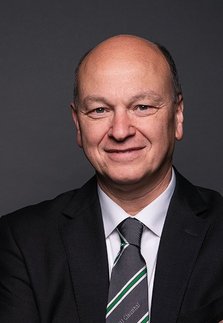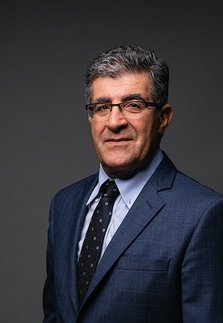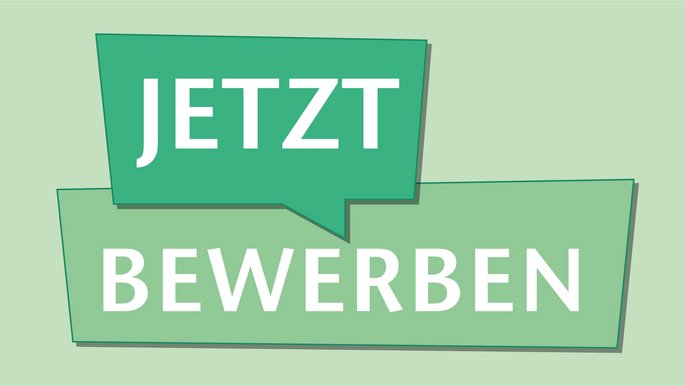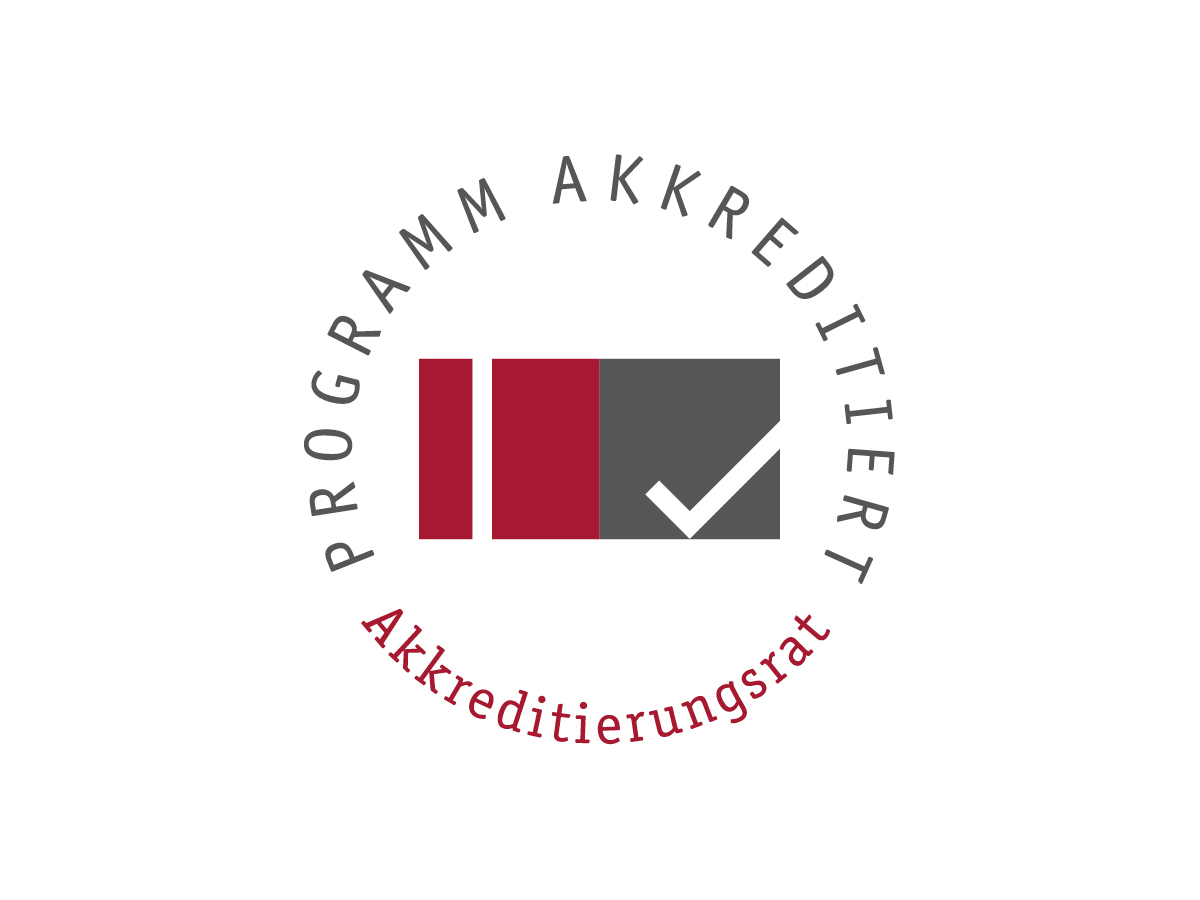Raw materials - indispensable for Germany's future
Every day, we use products that are made from primarily extracted or recycled raw materials. Raw materials are therefore an indispensable basis for our everyday lives and also form the basis of our economy. At the same time, the conservation and sustainable use of resources requires a rethink across society and technical progress in all areas of the provision and use of raw materials.
These future topics are addressed in the Sustainable Raw Materials Extraction and Recycling degree course in order to promote the development of a sustainable society.
Job profile and labor market
"Smart mining" and "advanced circular economy" are the buzzwords for the future of sustainable raw material supply - primary raw material extraction and recycling will become environmentally friendly, socially acceptable and increase resilience and independence. New technologies in both primary and secondary raw material extraction will permanently change the traditional picture of raw material supply. The development of highly efficient processes in the extraction, processing and recycling of mineral raw materials will enable a more sustainable use of natural resources. New processes and digitalized, networked systems will shape the future. Generalists with a technical focus but also an eye for ecological and economic interrelationships are being trained to meet these increasingly complex requirements. Industry, research and administration are looking for many specialists in this field, who may specialize further in a subsequent Master's degree course.
- Recycling and waste management
- Extraction and processing of metallic and mineral raw materials
- Basic material production (metals, building materials, plastics)
- Automotive industry, mechanical engineering, chemical industry
- Authorities, environmental agencies, engineering offices and consulting
- Credit institutions and insurance companies
- Environmental organizations
What makes the degree program in Clausthal special
Clausthal University of Technology has a long tradition in the raw materials, energy and materials sciences and continues this in its mission statement with the aim of a resource-efficient circular economy in the future.
Thanks to its industry-oriented, application-oriented research with strong national and international networking, the university has excellent prerequisites for imparting the latest scientific and technical knowledge for professional practice and further research.
The Bachelor's degree course in Sustainable Raw Material Extraction and Recycling offers a first academic, professional qualification as well as a basis for continuing the university education in a subsequent Master's degree course due to its high practical relevance.
Structure of the study program
The Bachelor's degree program has two fields of study:
- Sustainable raw material extraction
- Recycling
The basic framework of the course is formed by a large number of common basic modules in natural sciences and engineering as well as business administration, law and overarching social issues.
The two fields of study have modules that build on this for subject-specific specialization.
The choice of a field of study is made in the 3rd semester, so that there is sufficient time for orientation and a decision on the subject focus.
Sustainable raw material extraction
- Engineering fundamentals
- Geosciences
- Extraction technology in open-cast and underground mining
- Processing technology
- Geoinformation
- Soil and rock mechanics
- Automation, data processing and programming
- Occupational safety and health protection
- Mining and environmental law
- Business Administration
Field of study Recycling
- Engineering fundamentals
- Materials science
- Fundamentals of recycling
- Processing technology
- Environmental technology
- Automation, data processing and programming
- Fundamentals of environmental law
- business management
Industrial internship
The practice-oriented degree course includes a 16-week industrial internship, consisting of 4 weeks basic internship (usually before the degree course) and 12 weeks specialist internship. It offers a very good insight into engineering work and the opportunity to apply what you have already learned in practice.
Part-time study
The Bachelor's degree course in Sustainable Resource Extraction and Recycling can also be studied part-time. Further details on the requirements, structure and legal consequences of part-time study can be found in the "Regulations governing part-time study (TzO)" of Clausthal University of Technology in the currently valid version.
Before applying for and taking up part-time studies, a consultation with the responsible part-time study coordinator is mandatory. During this consultation, the part-time study coordinator will agree on an individual study plan (learning agreement) for the part-time study program in consultation with the student.
You can find the form for applying for part-time study (incl. Learning Agreement) here
Sustainable raw material extraction
Dipl.-Ing. Thomas Hardebusch
Phone: +49 5323 72-2225
Fax: +49 5323 72-2371
E-mail: thomas.hardebusch@tu-clausthal.de
Institute of Mining
Erzstraße 20
38678 Clausthal-Zellerfeld

Recycling field of study
Prof. Dr.-Ing. Daniel Goldmann
Phone: +49 5323 72-2735
Fax: +49 5323 72-2353
E-mail: daniel.goldmann@tu-clausthal.de
Institute of Mineral Processing, Landfill Engineering and Geomechanics
Walter-Nernst-Straße 9
38678 Clausthal-Zellerfeld

Prof. Dr. Hossein Tudeshki
Phone: +49 5323 72-2286
Fax: +49 5323 72-2371
E-mail: tudeshki@tu-clausthal.de
Institute of Mining
Erzstraße 20
38678 Clausthal-Zellerfeld
Overview
Type: Bachelor's degree programme
Duration: 6 semesters
Language of instruction: German
Degree: Bachelor of Science (B.Sc.)
Admission requirement: Higher education entrance qualification
Start date: The winter semester is recommended.
Accreditation: EUR-ACE® Bachelor, accreditation notice
accredited until 30.09.2030
Beginning of studies
Welcome Weeks (before lectures begin)
TU Clausthal supports students as they start their studies with various event formats.
Pre-mathematics course (before lectures begin)
The Institute of Mathematics offers a pre-mathematics course for all first-semester students (in German).
These master degree programmes may also interest you
Mining Engineering
Environmental Process Engineering and Recycling
Documents
Course Flyers
Model Study Plans
valid for AFB 2022
valid for AFB 2021
Examination Regulations
- General Examination Regulations
- Implementation Provisions (2022), valid from WS 22/23
- Implementation Provisions (2021), valid until the end of WS 26/27
Internship Regulations
Elective Course Catalogues
valid for AFB 2022
valid for AFB 2021
Module Handbooks
valid for AFB 2022
valid for AFB 2021
- See Module Handbook for AFB 2022, if you have questions, contact the program advisor.



